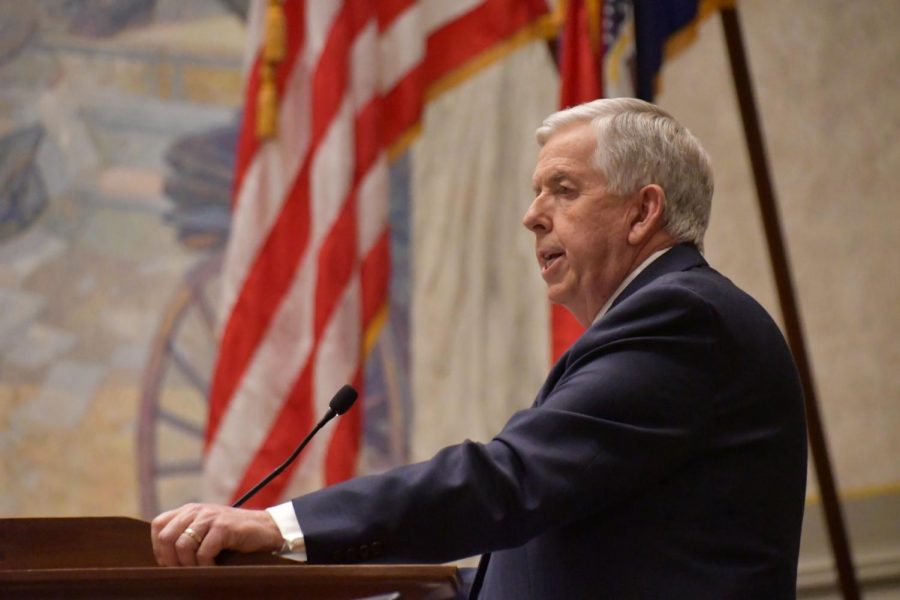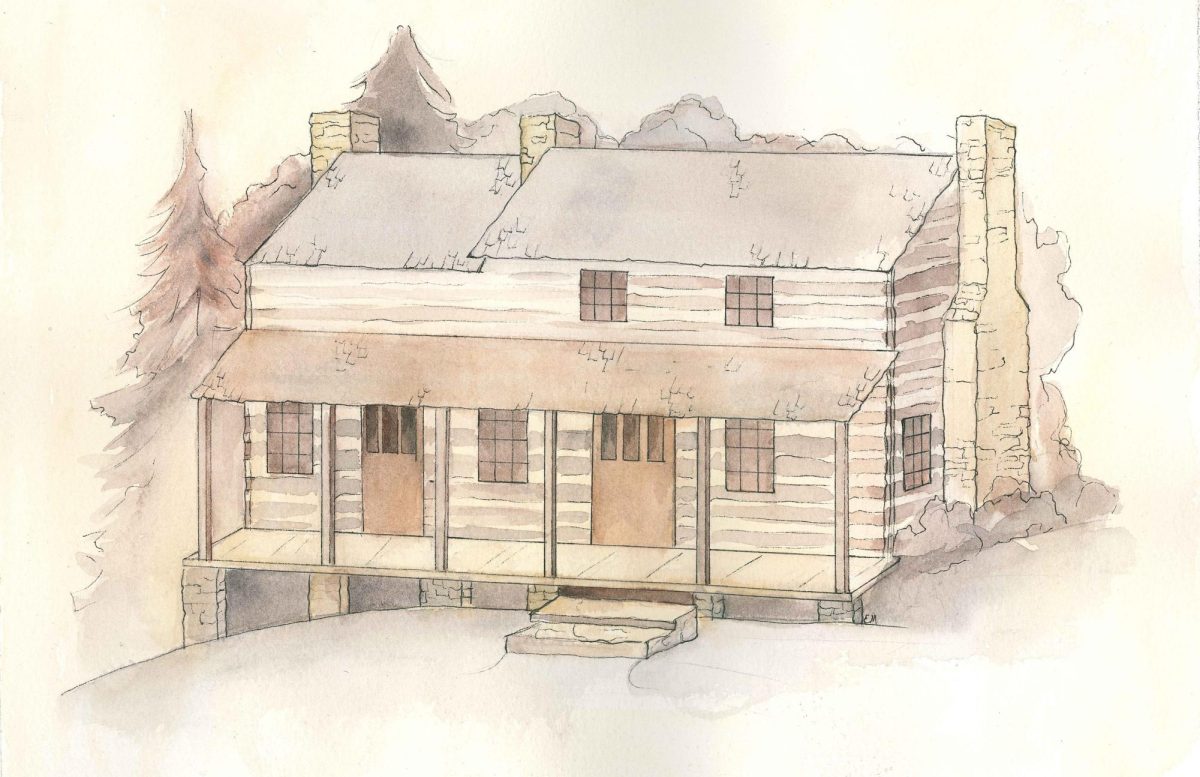Call Newspapers earlier this week filed a lawsuit against the Mehlville School District, Superintendent Tim Ricker and the Board of Education, alleging three “purposeful” violations of the Missouri Open Meetings and Records Law, also called the Sunshine Law.
In an attempt to increase the public’s access to district information, the Call filed suit Tuesday in St. Louis County Circuit Court against the school district, Ricker and the board — seeking the release of certain documents that have been withheld by the district, according to Call Newspapers President and General Manager Bill Milligan.
On each count, the lawsuit also seeks a $500 fine per violation, the newspaper’s attorney’s fees and an order that the defendants “undergo Sunshine Law training.”
Contacted for comment about the lawsuit, Superintendent Tim Ricker did not return this newspaper’s telephone call.
“We’re sorry it’s come to this because we’ve had such a good relationship with the Mehlville school board,” Milligan said. “And we’ve always supported them when they’ve gone to the polls, asking people to vote for tax increases. But we’ve taken this unusual step because ever since we began asking questions about Proposition P — what was supposed to be a $68.4 million bond issue funded by a 49-cent tax-rate increase — we’ve noticed that the school administration is taking a less cooperative stance and we believe they’ve tried to limit our access to information to control the news we write. And we feel that accountability and openness are critical in a democracy.”
The Call is being represented by Mary Ann L. Wymore of Greensfelder, Hemker & Gale in the lawsuit, which alleges:
District officials violated the Sunshine Law by “purposefully and willfully” withholding from the newspaper a listing agreement with Lechner Realty for the St. John’s Elementary School property on the corner of Will Avenue and Lemay Ferry Road.
The school originally was intended to be razed to make way for a new early childhood center — the final project of the Proposition P districtwide building improvement program. But administrators announced during a Proposition P Oversight Committee meeting Nov. 25 that constructing a school on that site would raise safety, access and aesthetic concerns.
District officials violated the Sunshine Law by failing to respond to the newspaper’s Sunshine Law request within 72 hours of an April 27 meeting of the Board of Education.
District officials violated the Sunshine Law by “purposefully and willfully” withholding from the newspaper written responses to questions posed by the public at a Feb. 24 Board of Education meeting.
Mehlville School District voters in November 2000 approved Proposition P, a nearly $68.4 million bond issue funded by a 49-cent tax-rate increase. However, the Board of Education last September adopted a revised budget for the Proposition P districtwide building program totaling more than $86.7 million.
The lawsuit also asserts that after the Call began “raising questions and reporting about issues associated with defendants’ use and accounting of Proposition P funds and other controversial issues relating to the district … Call Newspapers began to experience and observe what appeared to be punitive measures by defendants to hamper and obstruct Call Newspapers’ ability to report timely or thoroughly regarding district matters.”
Regarding the Lechner Realty listing agreement, Mehlville administrators first informed Proposition P Oversight Committee members of their concerns about the Will Avenue site Nov. 25. However, the board had voted in closed session Nov. 17 to begin negotiations with the Lechner Realty Group for a listing agreement for the St. John’s site. During a closed session Dec. 15, the board voted to approve a 90-day exclusive listing contract with Lechner Realty for the St. John’s site.
Board members voted to extend the listing contract for an additional four months during a March 9 closed session.
As reported earlier in the Call, Ricker denied the newspaper a copy of the listing agreement Dec. 19 because “in that contract is confidential information that could reveal on pricing, so that we’re not going to be releasing the details of some of the components of that.”
On April 2, the Call formally requested a copy of the contract, which Ricker denied a second time. In an April 13 letter, Ricker claimed that the agreement was an exemption under the Missouri Open Records and Meetings Law, stating that the contract “clearly relates to the potential sale of real estate by Mehlville and public knowledge might adversely affect the legal consideration received for the real estate.”
The newspaper on April 23 then submitted a formal request for a redacted version of the contract, explaining to Ricker that the Call would like to view parts of the contract that would be considered public information. Ricker’s response to the request, dated April 28, denied the Call’s request for a third time, again claiming that the contract was exempt under the Sunshine Law.
“Despite three requests by Call Newspapers, defendants persist in their refusal to provide Call Newspapers with a copy of the Lechner listing agreement,” the lawsuit states. “Defendants’ reason for denying access is based on (their) erroneous and grossly overbroad interpretation of the Sunshine Law.”
Even if the district could prove “… that public knowledge of the transaction might adversely affect the legal consideration therefor,” as Ricker has stated in his denials of the Call’s requests, the contention that the entire listing agreement is exempt from disclosure is “patently untenable,” the lawsuit states.
The Sunshine Law states, in part, “if a public record contains material which is not exempt from disclosure as well as material which is exempt from disclosure, the public governmental body shall separate the exempt and non-exempt material and make the non-exempt material available for examination and copying.”
The lawsuit states, “The defendants have failed to identify the exact information contained in the Lechner listing agreement which they believe might adversely affect the legal consideration for the St. John School property.” Under the Sunshine Law, “at most, only the pricing information in the Lechner listing agreement is arguably exempt from disclosure,” the lawsuit states, therefore “… defendants must produce to Call Newspapers a copy of the full Lechner listing agreement, with only the pricing information redacted.”
The lawsuit alleges that on Dec. 15 and March 9, the Board of Education “called closed sessions to discuss and vote on the Lechner listing agreement and its extension for an improper purpose in violation of the Sunshine Law.”
The lawsuit also addresses a recent request made by the Call for information about an April 27 closed session, alleging the district violated the Sunshine Law by failing to respond to the request within 72 hours of the closed meeting.
On April 27, the newspaper submitted a request to the Mehlville School District for information on votes taken during the board’s April 27 closed session. Ricker’s response, dated April 28, indicated that no votes had been taken during the April 27 closed session on legal, real estate or personnel matters.
However, on the afternoon of May 3, Ricker sent a letter to the newspaper with an “amended” response, indicating that in fact, personnel votes had been taken — reporting that board members unanimously voted to extend the contracts of various department directors for the 2004-2005 school year.
The lawsuit alleges that Mehlville did not accurately respond to the newspaper’s request until “almost 140 hours after the close of the April 27, 2004, meeting … This purposeful obstructive conduct, which caused Call Newspapers’ inability to cover the April 27, 2004, board meeting in its newspaper, evidences a purposeful violation of the Sunshine Law…”
Furthermore, the lawsuit also seeks a judgment ordering that the Mehlville School District comply with a Sunshine Law request made by the newspaper almost three months ago. The newspaper never has received a response to its request.
At a Feb. 24 meeting, six members of the public addressed board members — all discussing a student discipline matter at Mehlville Senior High School involving a voluntary transfer student. Several family members of former student Darrell Trice attempted to speak about the details surrounding the student’s suspension.
However, board President Cindy Christopher warned the speakers that they could not name specific students during the meeting’s open period of comments, but they could ask general questions about board policies. One by one, the citizens then asked questions regarding the district’s discipline policies and procedures. Flossie Trice, the student’s grandmother, wanted to know how the district determined issuing a 10-day suspension vs. a 98-day suspension. The student’s brother, Dante Trice, wanted to know how the district defined “brutal” in its policies.
Tiffany Mack requested information on the district’s policies or procedures regarding the banning of students from the cafeteria.
“Mrs. Christopher asked Dr. Ricker to respond in writing on behalf of the Board of Education, to the requests …,” according to the board’s official minutes from the Feb. 24 meeting.
On Feb. 25, the newspaper sent a formal request to the district asking for a copy of Mehlville’s response to the questions posed by members of the public during the period for open comment.
In a letter dated Feb. 17, Ricker indicated that upon receiving an opinion from district attorneys, he would notify the newspaper “as soon as humanly possible.”
To date, the newspaper has not received a response to its Feb. 25 Sunshine Law request.
“It is clear that the board’s written responses to questions posed by the public during a meeting in open session is a public record which pursuant to Missouri’s Sunshine Law is to be made available for inspection and copying,” the lawsuit contends. “… Defendants’ failure to provide access to the requested record, as well as defendants’ failure to give a detailed explanation to Call Newspapers of the cause for the delay of more than two months in producing the record as required … evidences a purposeful violation of Missouri’s Sunshine Law …”
“It’s a last resort,” Milligan said of the lawsuit. “And we obviously feel it can’t hurt relationships anymore than … it can’t strain our relationship anymore than it’s already been strained. So, by taking this step, we feel we’re making a good-faith effort to improve our relationship with the Mehlville School District and get back to the way we were before Dr. Ricker became superintendent.”
While unfortunate, Milligan believed that the suit is necessary to aid in the future development of students who are part of the Mehlville School District.
“We’ll continue to look for every way possible to help the Mehlville School District and to ensure that children that are growing up here and attending Mehlville schools have every opportunity to develop and succeed,” he said. “We believe that their chances are improved when the Mehlville School District and the administration and Board of Education operate in the light of day rather than behind closed doors.”
Asked if the Call would be able to report on Mehlville issues without bias while it is in the middle of a lawsuit with the district, Milligan said, “I think that goes without saying because I’m suing the school district. The reporters are doing what they’ve done from day one and that’s report. It’s not a reflection on the reporters because they’re not filing a lawsuit. I don’t think that anybody who has studied our coverage of the Mehlville School District or anything else can say that we’ve been biased in any way, shape or form.”
To view a full version of the lawsuit, click on the “Mehlville lawsuit” link. Adobe Acrobat Reader is needed to view the document.








